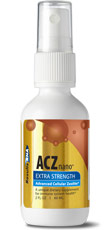Airborne Toxins
![]() Sometimes an everyday product choice can make a world of difference. Below are some new studies that reveal how some cookware, raincoats, carpets, shoes and pesticides can expose the people who manufacture them?and our families?to problematic chemicals. Check out our healthier alternatives.
Sometimes an everyday product choice can make a world of difference. Below are some new studies that reveal how some cookware, raincoats, carpets, shoes and pesticides can expose the people who manufacture them?and our families?to problematic chemicals. Check out our healthier alternatives.
Toxic Chemicals in Teflon
New information is coming to light about the toxic effects of a chemical used in making non-stick coatings such as Teflon. The chemical goes by the name PFOA (short for perfluorooctanoic acid), or C8, and is also used in the manufacture of food wrap and water- and stain-resistant fabric coatings.
Studies presented at a March 2005 national toxicology meeting show that PFOA exposure during pregnancy causes miscarriage and low birth weight in mice; many of the exposed offspring went on to experience delayed puberty. The U.S. Environmental Protection Agency (EPA), which conducted these studies, is evaluating the possible human health risks of PFOA. Animal studies have shown that PFOA, in addition to harming development, is also linked to hypothyroidism and cancer.
 For years, these chemicals, which do not break down easily, have spread throughout the environment and our bodies. A 2001 survey of nearly 600 children found PFOA in the blood of 96 percent of the individuals sampled. Another member of the perfluorocarbon family, PFOS, was long used in Scotchgard until it was phased out of production in 2000 because of its spread into the environment and human beings. "The most important part of this is that these chemicals are in everyone's blood," says Timothy J. Kropp, Ph.D., senior scientist at the Environmental Working Group. And there is growing evidence that the parent chemical in some consumer products can break down and release PFOA, Dr. Kropp adds.
For years, these chemicals, which do not break down easily, have spread throughout the environment and our bodies. A 2001 survey of nearly 600 children found PFOA in the blood of 96 percent of the individuals sampled. Another member of the perfluorocarbon family, PFOS, was long used in Scotchgard until it was phased out of production in 2000 because of its spread into the environment and human beings. "The most important part of this is that these chemicals are in everyone's blood," says Timothy J. Kropp, Ph.D., senior scientist at the Environmental Working Group. And there is growing evidence that the parent chemical in some consumer products can break down and release PFOA, Dr. Kropp adds.
What you can do
*Teflon does not release PFOA during normal cooking, so follow manufacturer's directions and don't overheat when using Teflon pans.
*If buying a new pan, choose cast iron, stainless steel or enameled cookware.
*Avoid buying outerwear, furniture and carpets that have been treated with stain- and water-resistant finishes, which may release PFOA. Safer raincoat alternatives: tightly woven untreated cloth, natural rubber or wax-coated cotton coats.
*Although Scotchgard has been reformulated, few studies on the replacement chemical are available. When buying furniture, seek untreated, tightly woven natural fabrics such as water-repellent wool.
The Shoe Sniff Test
Benzene, present in gasoline and other petrochemical products, is on everyone's list of baddies because it causes cancer and birth defects. Low levels of benzene are found in air polluted by cigarette smoke, vehicle exhaust, oil refineries and other industrial sources. In North America, federal law limits workers' exposure, but such protections are absent in China's sweatshops, where benzene-based shoe glues are used to make footwear.
A study published in the December 2004 Science found that Chinese shoe-factory workers who breathed in low levels of benzene in air?below 1 part per million, the same level that the U.S. government sets as the maximum allowable for a worker to breathe in during an eight-hour workday?suffered a drop in the number of white blood cells (WBCs), which protect against infection. High doses of benzene killed off not only mature WBCs but also the cells that help make new WBCs. Previous studies?which looked only at mature WBCs?may have underestimated the toxicity of this chemical.
What you can do
*Avoid secondhand cigarette smoke, car exhaust, gasoline vapors, and take steps to reduce your exposure to air pollution (see GG #107 and #108).
*Choose shoes and clothing made in overseas factories that adhere to better worker-protection standards. For a list, see www.sweatshops.org.
Fleurs du Mal
Pyrethroid insecticides have grabbed one fourth of the worldwide pesticide market, since pesticides have been found to be hazardous to the health of children and have been taken off the market. But pyrethroids are by no means a benign alternative. Synthetic versions of a toxin in chrysanthemum flowers, pyrethroids are found in many home, school and garden pest sprays. Pyrethroids kill insects by paralyzing the nervous system. Several studies suggest that they are toxic to the human nervous system as well.
Although pyrethroid toxicity to adult animals has been established, Timothy Shafer, a scientist at the EPA, searched for research on the very young. He found 22 studies that looked at pyrethroid exposure in the womb and in the first few days of life. Many of the studies reported defects in rodents' motor skills, changes in their activity levels and a drop in density of certain proteins, called receptors, that are responsible for passing signals from one nerve cell to another. Effects were not consistent across all studies, however, as reported in the February 2005 Environmental Health Perspectives. "It was a little surprising that these compounds have been on the market for 40 years and we only found 19 peer-reviewed studies plus three non-published ones," says Shafer.
Despite the lack of studies, there is a good chance that a chemical that causes neurotoxicity in adults is going to have an effect on fetal brain development, says Theodore Slotkin, a pharmacology professor at Duke University. "It is well acknowledged that the developing nervous system is more vulnerable in general to any neurotoxicant." Pyrethroids have other effects on the endocrine system, and some can provoke allergies and asthma.
What you can do
*Avoid purchasing home and garden products containing pyrethroids, which come in many varieties including permethrin (found in flea treatments for dogs) and resmethrin (found in sprays for flying insects).
*Try to find out what is in any pesticide treatments used by exterminators in your home and workplace.
*As an alternative, try natural pesticides such as garlic extract.

